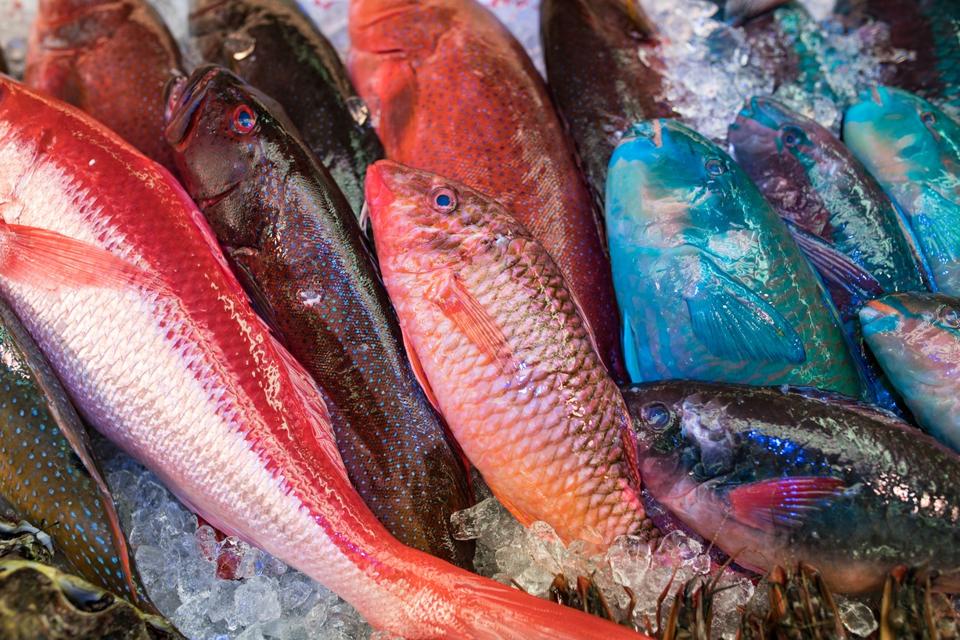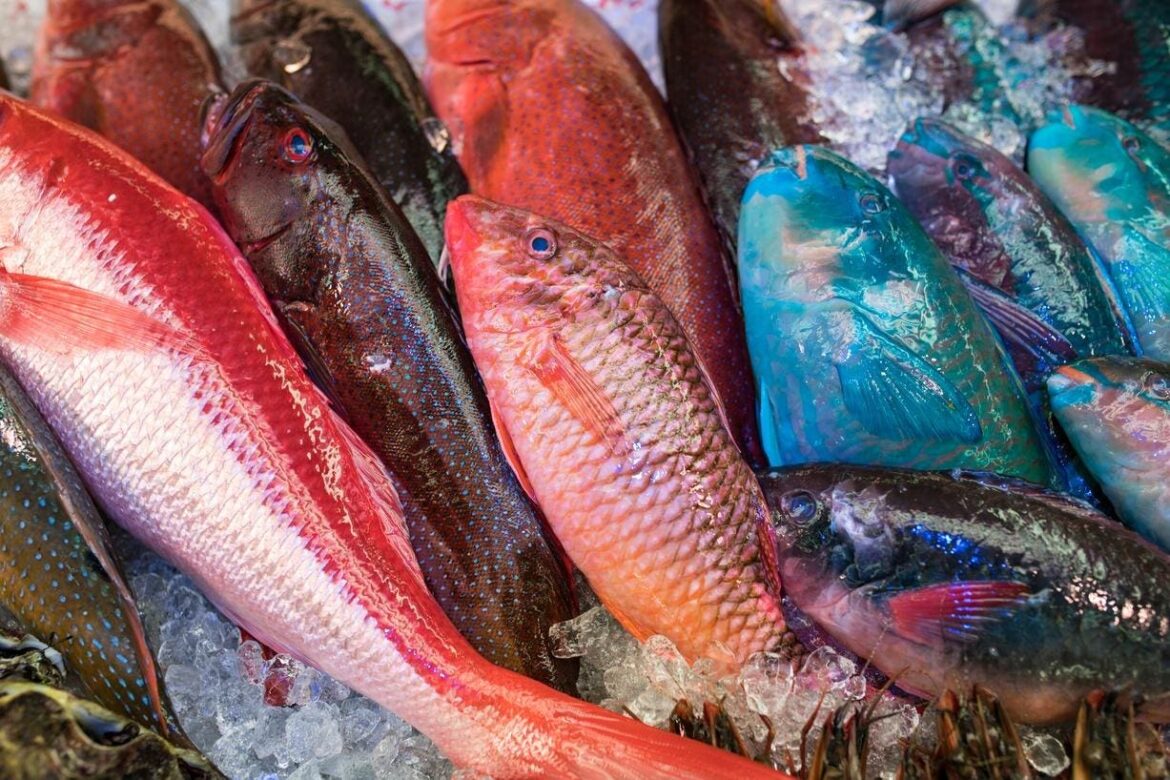
Shinkei Systems aims to offer the highest quality fish to broader consumers with the Japanese Ikejime technique.
getty
Why does sushi taste so good?
Because the fish is fresh.
How is the fish kept so pristine?
The secret is Ikejime.
Ikejime is the technique used by Japanese fishermen for centuries to slaughter fish instantly and humanely by inserting a spike into the brain. Then the spiral cord is disrupted to prevent rigor mortis and the blood is completely removed.
Compared to a slow suffocation on the deck of a boat, Ikejime can dramatically improve the quality of the fish by reducing stress for the animal and minimizing the release of stress hormones like cortisol, adrenaline, and lactic acid. Also, by completely draining the fish of blood, the risk of bacterial growth is minimized and thus the source of the fishy odor is diminished too.
The results are better quality fish, for which fishermen can charge a higher price.
The benefits of the Ikejime technique are obvious, but how do you convince fishermen to learn an unfamiliar skill and switch their established daily tasks to something different?
Enter Poseidon, the novel, automated AI-based Ikejime robot.
How Poseidon works is impressive. It performs the ikejime process, which requires the skills and experience of fishermen, in under seven seconds.
When a fish is placed in, the robot utilizes computer vision to identify the species, locate the brain, spike and bleed the fish, euthanizing it instantly. The fish then exits the machine into a temperature-controlled ice slurry.
The machine’s algorithm is trained not only to perceive different sizes and shapes of fish, but also to accommodate the realities of commercial fishing boats: wriggling fish, rough waves, and harsh weather.
From a logistics perspective, Poseidon is around the size of a refrigerator and is installed directly on the deck of a fishing boat with minimal disruption to the normal workflow. Each device is equipped with a Starlink satellite, which not only allows the robot to make real-time software updates but also gives the fishermen access to WiFi at sea, which is uncommon in commercial fishing.
Poseidon on a fishing boat.
Shinkei Systems
Reinventing The Fishing Industry With The Ikejime Technique
According to the Food and Agriculture Organization of the United Nations (FAO), approximately 30-35% of the global fisheries and aquaculture production is either lost or wasted every year.
Saif Khawaja, founder of Shinkei Systems and inventor of Poseidon, started to question the current state of the fishing industry while he was studying at The Wharton School of the University of Pennsylvania as an undergraduate.
“The fishing industry has been largely untouched by technology. Many fishermen use the same tools to harvest fish that they did hundreds of years ago and the supply chain infrastructure lags behind animal agriculture. This gap presents a significant challenge to maintain the quality and freshness of fish,” says Khawaja.
In 2022, the year after graduating from The Wharton School, he founded Shinkei Systems.
Even with Poseidon’s easy-to-use technology, Khawaja had a hard time getting American fishermen to try it out. But eventually, he managed to convince them to equip their ships with the robot along with a unique business model: the company provides fishermen with the robot at no extra cost and buys the fish that have gone through the Ikejime process at a premium price.
Khawaja says, “Currently, we have eight Poseidon working on ships in the Pacific, Atlantic, and the two American gulfs. The reaction to our technology from fishermen has been so positive that we cannot manufacture the machines fast enough. In some cases, partner fishermen have doubled their take-home margins.”
Saif Khawaja, founder of Shinkei Systems and inventor of Poseidon.
Shinkei Systems
Sea To Table: Meticulous Quality Control Through Vertical Integrated Operations
Khawaja’s goal does not stop at processing fish through Ikejime. He wants to offer the highest quality fish to broader consumers.
To make it happen, he created a vertically integrated system. In October 2022, Shinkei Systems launched Seremoni, the distribution arm of Shinkei Systems.
The company calls its products “Seremoni Grade”, which goes beyond sushi-grade fish.
“Seremoni Grade means wild caught by American fishermen in American waters, no preservatives of any kind, distributed through a fully traceable supply chain from the moment the fish leaves the water to packing to distribution to your plate,“ says Khawaja.
“It represents our vision to democratize access to quality seafood. We harness technology at every stage of our system to provide the highest quality fish to everyone, which has been reserved for expensive, Michelin-starred sushi restaurants.”
Seremoni’s products are already used by notable quality-driven restaurants nationwide, including Blue Hill at Stone Barns, Atomix, Restaurant Daniel and Sushi Zo in New York, Citrin, Redbird and Kato in Los Angeles, Benu in San Francisco, minibar by José Andrés in Washington, D.C.
Also, they are sold at the world’s largest premium fish market, Toyosu Fish Market in Tokyo. And for consumers, the company started to distribute its products through retail shops, such as Happier Grocery in New York City.
Seremoni’s consumer product.
Shinkei Systems
Seremoni’s selection of fish types reflects its sustainability focus. Currently, the company processes six species, including black cod and rockfish.
“These species have historically been passed over in favor of more commercially familiar species, but we prioritize fish seen less frequently in the grocery store or on restaurant menus, though they are also delicious in their own right.”
The company is planning to expand its offerings to include red snapper and salmon this year, but will remain committed to working with local, American fishermen to deliver best-in-class fish.
Currently, Seremoni partners with a select few processors in the U.S. that are capable of supporting its quality standards and hopes to develop more partnerships with like-minded processing facilities.
In June 2025, Shinkei Systems raised a $22 million Series A round, bringing its total funding to $30 million, which will be spent to expand its distribution to retailers and commercial fishing vessels.


AloJapan.com